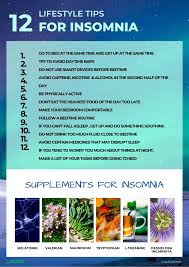Natural Remedies for Insomnia
Insomnia, the inability to fall asleep or stay asleep, can be a frustrating and debilitating condition that affects many people. While there are various medications available to help with sleep, some individuals prefer to explore natural remedies as a first step. Here are some effective natural remedies for insomnia:
Establish a Consistent Sleep Routine
Creating a regular sleep routine can help regulate your body’s internal clock and improve your sleep quality. Try going to bed and waking up at the same time every day, even on weekends.
Create a Relaxing Bedtime Ritual
Avoid stimulating activities before bed, such as watching TV or using electronic devices. Instead, engage in calming activities like reading a book, taking a warm bath, or practicing relaxation techniques such as deep breathing exercises or meditation.
Maintain a Comfortable Sleep Environment
Create an optimal sleep environment by ensuring your bedroom is cool, dark, and quiet. Consider using earplugs or an eye mask if necessary.
Limit Stimulants
Avoid consuming caffeine and nicotine close to bedtime as they can interfere with your ability to fall asleep. Additionally, limit alcohol intake as it can disrupt sleep patterns.
Regular Exercise
Incorporate regular physical activity into your daily routine, but try to avoid exercising too close to bedtime as it may increase alertness and make it difficult to unwind.
Herbal Teas and Supplements
Certain herbal teas like chamomile or valerian root can have a calming effect and promote sleep. Additionally, supplements like melatonin or magnesium may help regulate sleep patterns. It’s important to consult with a healthcare professional before starting any new supplements.
Stress Management
Stress and anxiety can significantly impact your ability to sleep. Explore stress management techniques such as journaling, practicing mindfulness, or seeking professional help through therapy or counseling.
Aromatherapy
Using essential oils like lavender or chamomile in a diffuser or adding a few drops to your pillow can create a relaxing atmosphere that promotes better sleep.
While these natural remedies can be effective for many individuals, it’s important to remember that everyone is different. If your insomnia persists or worsens despite trying these remedies, it’s advisable to seek medical advice from a healthcare professional.
9 Natural Remedies to Beat Insomnia and Improve Your Sleep
- Establish a regular sleep schedule by going to bed and waking up at the same time every day.
- Create a relaxing bedtime routine, such as taking a warm bath or reading a book.
- Avoid electronic devices, caffeine, and heavy meals close to bedtime.
- Create a comfortable sleep environment with a cool temperature, dark room, and comfortable mattress.
- Engage in regular physical exercise during the day to promote better sleep at night.
- Try relaxation techniques like deep breathing exercises or meditation before bed.
- Avoid napping during the day, especially in the late afternoon or evening.
- Limit alcohol consumption as it can disrupt your sleep patterns.
- Consider natural remedies like herbal teas (chamomile or valerian root) or aromatherapy with lavender oil.
Establish a regular sleep schedule by going to bed and waking up at the same time every day.
Establishing a regular sleep schedule by going to bed and waking up at the same time every day is a crucial tip for improving sleep quality and combating insomnia. Our bodies have an internal clock, known as the circadian rhythm, which regulates our sleep-wake cycle. By maintaining a consistent sleep routine, we help synchronize this internal clock, making it easier to fall asleep and wake up naturally. This regularity trains our bodies to anticipate sleep at a certain time, promoting better sleep efficiency and overall restfulness. So, make it a priority to set a consistent bedtime and wake-up time, even on weekends, to optimize your sleep patterns and improve your overall well-being.
Create a relaxing bedtime routine, such as taking a warm bath or reading a book.
Creating a relaxing bedtime routine is an essential natural remedy for insomnia. Engaging in activities that promote relaxation, such as taking a warm bath or reading a book, can help prepare the mind and body for sleep. A warm bath helps to soothe muscles and release tension, while reading a book can divert the mind from daily stressors and promote a sense of calm. By incorporating these activities into your nightly routine, you can create a peaceful atmosphere that signals to your body it’s time to unwind and prepare for a restful night’s sleep.
Avoid electronic devices, caffeine, and heavy meals close to bedtime.
To improve your sleep quality and combat insomnia, it is essential to avoid electronic devices, caffeine, and heavy meals close to bedtime. Electronic devices emit blue light that can disrupt your body’s natural sleep-wake cycle, making it harder for you to fall asleep. Caffeine, found in coffee, tea, and some sodas, is a stimulant that can keep you awake and make it difficult to relax. Additionally, consuming heavy meals before bed can cause discomfort and indigestion, making it challenging to drift off into a restful sleep. By eliminating these factors from your nighttime routine, you can create a more conducive environment for a peaceful night’s rest.
Create a comfortable sleep environment with a cool temperature, dark room, and comfortable mattress.
Creating a comfortable sleep environment is essential for a restful night’s sleep. One key aspect is maintaining a cool temperature in the bedroom, as a cooler room promotes better sleep. Additionally, ensuring the room is dark helps signal to your body that it’s time to rest. Investing in blackout curtains or using an eye mask can be beneficial. Lastly, having a comfortable mattress that supports your body can significantly improve your sleep quality. By prioritizing these factors, you can create an optimal sleep environment that promotes relaxation and helps combat insomnia.
Engage in regular physical exercise during the day to promote better sleep at night.
Engaging in regular physical exercise during the day can have a positive impact on your sleep at night. Exercise helps to regulate your body’s natural sleep-wake cycle, also known as the circadian rhythm. By being physically active, you expend energy, reduce stress levels, and promote a sense of well-being. These factors contribute to better quality sleep and make it easier to fall asleep at night. However, it’s important to avoid exercising too close to bedtime as it may increase alertness and make it harder for you to unwind. Incorporating exercise into your daily routine can be a natural and effective way to improve your sleep patterns and overall sleep quality.
Try relaxation techniques like deep breathing exercises or meditation before bed.
One effective tip for natural remedies for insomnia is to try relaxation techniques like deep breathing exercises or meditation before bed. These techniques can help calm the mind, reduce stress, and promote a sense of relaxation, making it easier to fall asleep. Deep breathing exercises involve taking slow, deep breaths and focusing on your breath, which can help slow down the heart rate and induce a state of relaxation. Meditation involves clearing the mind and focusing on the present moment, allowing you to let go of racing thoughts and worries that may be keeping you awake. By incorporating these relaxation techniques into your bedtime routine, you can create a peaceful environment that encourages a restful night’s sleep.
Avoid napping during the day, especially in the late afternoon or evening.
Avoid napping during the day, especially in the late afternoon or evening. Napping can disrupt your natural sleep-wake cycle and make it harder to fall asleep at night. If you feel the need to rest during the day, try to limit your nap to no more than 20-30 minutes and aim to take it earlier in the day. This will help ensure that you still feel tired when it’s time for bed and increase your chances of getting a good night’s sleep.
Limit alcohol consumption as it can disrupt your sleep patterns.
Limiting alcohol consumption is an essential tip when it comes to natural remedies for insomnia. While alcohol may initially make you feel drowsy and help you fall asleep faster, it can disrupt your sleep patterns and lead to poor-quality sleep. As the body metabolizes alcohol, it can cause more fragmented and restless sleep, resulting in frequent awakenings throughout the night. By reducing or avoiding alcohol before bedtime, you can promote better sleep and wake up feeling more refreshed and energized in the morning.
Consider natural remedies like herbal teas (chamomile or valerian root) or aromatherapy with lavender oil.
When it comes to finding natural remedies for insomnia, exploring options like herbal teas such as chamomile or valerian root can be beneficial. These teas have calming properties that can help relax the mind and body, making it easier to fall asleep. Additionally, incorporating aromatherapy with lavender oil can create a soothing environment that promotes better sleep. Lavender has been known for its relaxing effects and can help create a sense of tranquility before bedtime. By considering these natural remedies, individuals experiencing insomnia can explore gentle and holistic approaches to improve their sleep quality.





Hello there, I found your website by the use of Google while looking for a similar
topic, your web site got here up, it appears great.
I’ve bookmarked it in my google bookmarks.
Hi there, just became alert to your blog via Google, and located that it’s really informative.
I’m going to watch out for brussels. I’ll be grateful in the event you proceed this in future.
Lots of other folks will be benefited from your writing.
Cheers!
Thank you for your kind words and for bookmarking our website! We’re glad to hear that you found the information on natural remedies for insomnia informative. We aim to provide valuable content to help others improve their sleep quality and overall well-being. Stay tuned for more articles and tips in the future. Cheers!
What’s up, I read your blig lije every week. Youur wriing sthle is awesome, keesp upp the good work!
Thank you for your kind words and for being a regular reader of our blog on natural remedies for insomnia. We’re glad you find the content valuable and appreciate your support. If you have any questions or need further information, feel free to reach out. Keep prioritizing your sleep health!
Your style is so unique compared to other folks I have read
stuff from. I appreciate you for posting
when you’ve got the opportunity, Guess I’ll just book mark this blog.
Thank you for your kind words! We’re glad you found the information on natural remedies for insomnia valuable. Feel free to bookmark our blog for more helpful tips and insights on improving sleep quality naturally. If you have any questions or need further assistance, please don’t hesitate to reach out. We appreciate your support!
I have been exploring for a little for any high quality articles or weblog
posts on this sort of house . Exploring in Yahoo I at last
stumbled upon this web site. Reading this info
So i am satisfied to exhibit that I have a very excellent uncanny feeling I discovered
just what I needed. I such a lot indubitably will make certain to do not put out of your mind this website and provides it a look
on a constant basis.
Thank you for your kind words! We’re glad to hear that you found the information on natural remedies for insomnia helpful. Consistently exploring natural solutions and incorporating them into your routine can indeed make a positive impact on your sleep quality. Feel free to visit our website regularly for more insightful articles and tips on improving your sleep patterns naturally. Your commitment to prioritizing your well-being is commendable!